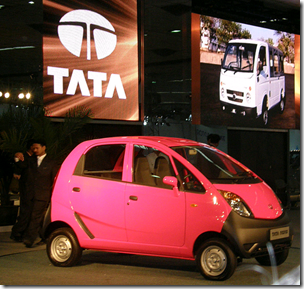
MDP managing partner Ashok Paranjpe, who joined from Naik Paranjpe & Co - as it was then called - in June of this year, represented his longstanding client and claimant Tata Motors in the arbitration proceeding.
Little & Co partner Rajni Divkar led the respondents Gujarat Electricity Board or Gujarat Urja Vikas Nigam.
The award passed on 19 July 2011 in sole arbitration proceedings presided over by retired Supreme Court Justice S N Variava. The five-year dispute had its origin in a lease agreement signed between Tata Financial, now a subsidiary of Tata Motors, and Gujarat Urja for renting out of equipments in 1993 and 1994.
According to Paranjpe, the issue involved claiming of disallowed depreciation on the equipment from the Electricity Board under the terms of the lease agreement signed between Tata Motors and Gujarat Urja.
Tata Motors had turned to claim the depreciation amount from Gujarat Urja after the Income Tax authorities’ refusal to grant depreciation relief to Tata Motors.
The respondents Gujarat Urja defended the payment of depreciation amount on the grounds that the clause in the lease agreement providing for event of disallowance of depreciation was vague and therefore void.
Further it stated in its defense that the transaction shown as a lease agreement was financial in nature and Tata Motors was not the owner of the equipment.
Divkar told Legally India that Little & Co would file an application in the Bombay High Court under section 34 of the Arbitration and Conciliation Act 1996 to set aside the award.
Section 34(b)(ii) states that a court can set aside an award if it is “in conflict with the public policy of India”, which has been interpreted by the Supreme Court in the ONGC v Saw Pipes case as giving it the power to challenge any award that is “patently illegal”.
The government in May 2010 proposed to curtail this interpretation of the Supreme Court.
threads most popular
thread most upvoted
comment newest
first oldest
first
threads most popular
thread most upvoted
comment newest
first oldest
first